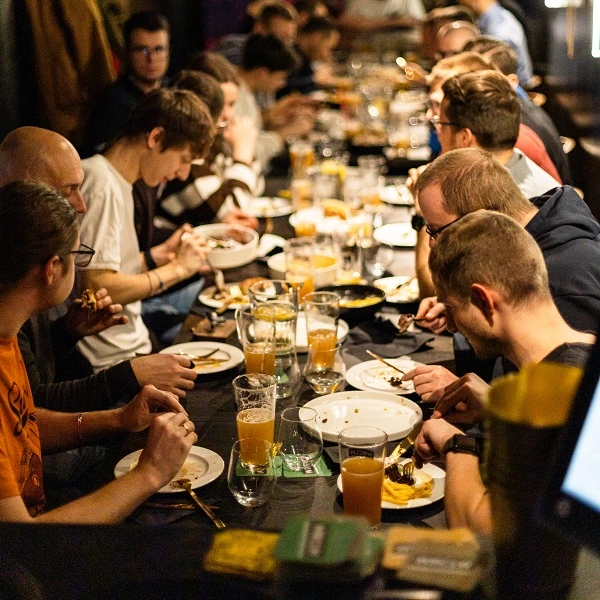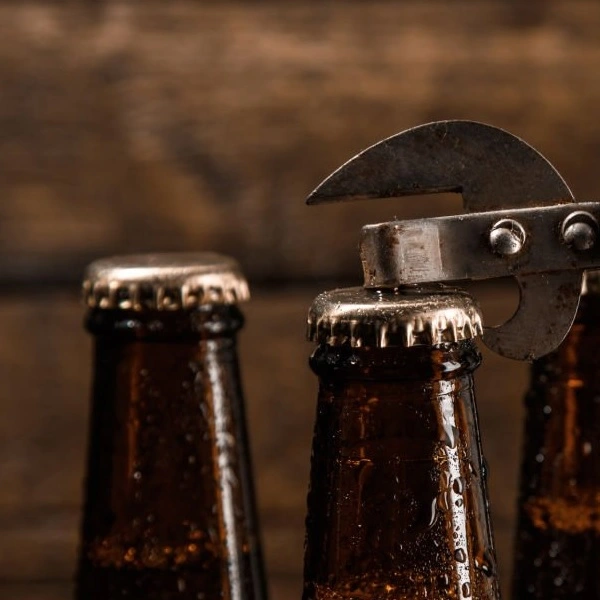Guide




Pale Ale is a broadly understood style straight from Great Britain, where it simply meant top-fermented beer and despite the adjective "Pale", they were not always only light beers. In the American version, this style is associated primarily with intensive hopping, both for bitterness and aroma, and thanks to the use of new varieties of this hops, the aroma of this beer can be unusual!
The malts used are the background for intensive hopping. We used only light malts, with a small addition of light caramel malt, which in a very subtle way builds up the fullness of this beer.
Hops make this beer special. We used only American hops – only new wave. Clear bitterness comes from Chinook hops, slightly spicy in profile, with a distinct pine notes. At the end of boiling, as well as when separating hot sediments, we add a considerable amount of Simcoe hops – known for its intense citrus and pine aroma. After fermentation, during aging, Pale Ale gets a very distinct, fresh aroma of pine notes and tropical fruit, provided by a mixture of Mosaic and Simcoe.
Pale Ale is a beer with a dual character. Drunk from Nonic or Shaker glass, it is an everyday beer, highly aromatic, but also highly drinkable. However, when you want to focus more clearly on the hop motifs, it is worth using Sensoric, Tulip or IPA Glass, which will emphasize the hop character of this style.
If we treat this beer as a everyday beer, the recommended dishes will be the lighter ones, such as fish, poultry dishes or pasta with light sauces. Also cheeses can change the feelings during foodparing – young, more dairy cheeses, such as Gouda or Cheddar, will tone this beer. If we combine the tasting with blue, spicy cheese, we will raise the bitterness and hoppy character of it. The fruitiness of the aroma will be intensified by strongly fruity desserts, such as cold cheesecakes or sorbets. Cakes with mint, on the other hand, will highlight the pine flavor of Simcoe hops


